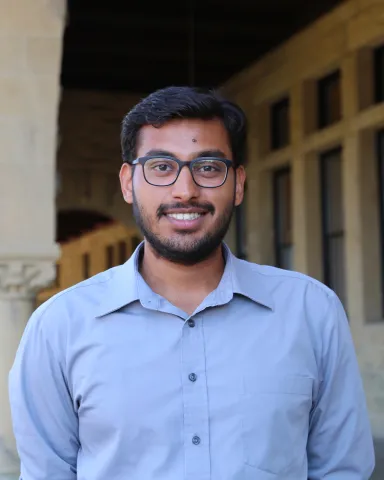
Akshay Jain

My firm belief in the transformative power of education is rooted in my own educational journey. At an impressionable age of fourteen, I received a scholarship to leave my hometown New Delhi and enroll in an innovative high school program in Singapore. Thereafter, I enrolled at the National University of Singapore (NUS) where I majored in Economics while exploring myriad other disciplines such as political science, philosophy, physics, biology and linguistics. I also got an opportunity to travel more than ten countries on student immersion programs. It was during these years that I started discussing my educational experiences with my peers back home. While our conversations made me immensely grateful for my own journey, I also wondered why such a journey was not accessible to most children growing up in the world today.
It was with this question that I returned to India and worked for two years with the state government of Andhra Pradesh (AP), a southern state in India, on the newly launched Knowledge Mission. The mission hoped to transform AP into the hub of knowledge economy in India through a systemic shift in higher education. While working with senior bureaucrats and policymakers, I realized that governments single-handedly have the ability to shape the educational experiences, aspirations and the future of millions of young citizens. I also grew curious about the world of research and scholarship that could shape, guide and improve these educational policies in India.
With this aim in mind, I applied and finally arrived at the Stanford GSE’s International Education Policy Analysis (IEPA) program last year. Despite all my educational experiences before Stanford, my time here has become the highlight of my educational journey thus far. At the program, I got an opportunity to learn the art of research through the carefully scaffolded MA paper. My thesis explored the relationship between government funding and research productivity at top science and technology universities in India. I also got to take classes that exposed me to various strands of cutting-edge research across other sub-disciplines of education. For instance, I took classes on subjects as varied as early childhood cognitive development, environmental education, machine learning, ed-tech disruptions in higher education, and John Dewey’s philosophy of education. The flexibility of the program allowed me to explore the full contours of the field of education, while also ensuring that I delve deeper into my specific area of interest - higher education in India – through the guided research paper. It was this balance that made me appreciate and nurture my passion for higher education, while also breaking new ground and cross-pollinating new ideas.
As my time at Stanford ends, I am nostalgic about the warm, sunny afternoons spent lying and reading on the various grass lawns that adorn the stunning Stanford campus. However, I am also eager to embark on my next adventure. I will be returning to South India to work as a Project Manager at Krea University, a pioneering liberal arts university set to begin classes next year, managing university partnerships and student life. I hope that my learnings at Stanford regarding the fourth industrial revolution and future of work will stand me in good stead as we tread unchartered waters to unlock a new paradigm of higher education in India.
